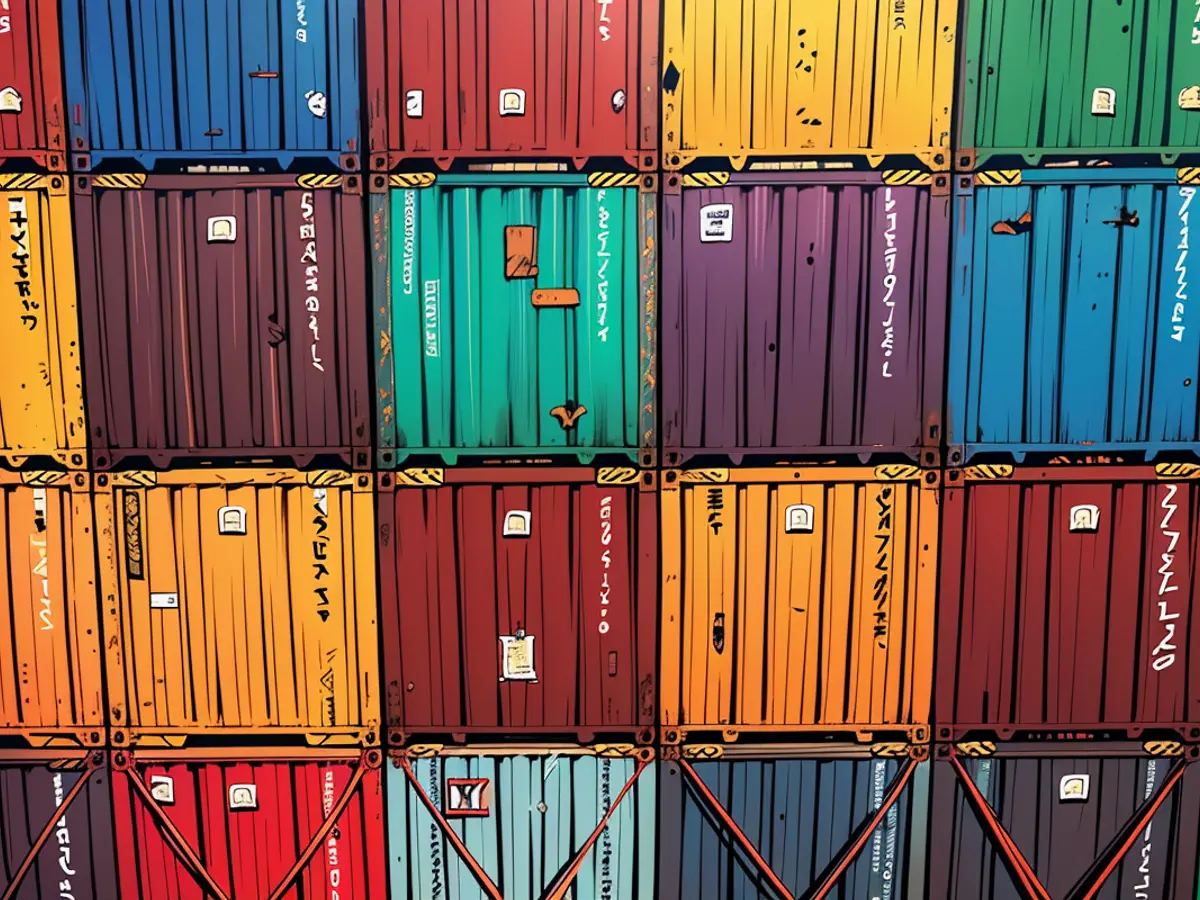Foreign trade - Thuringia purchases fewer goods from China
Thuringen bought significantly less goods from China in the first months of 2024 than in the previous year. Imports from the People's Republic decreased by 348.7 million Euro or approximately one fifth in the first quarter, according to figures from the Statistical Office in Erfurt on Thursday. The imports from EU countries moved by 106.1 million Euro or 4.4 percent.
Overall, Thuringian imports, influenced mainly by China and the EU area, decreased by 8.9 percent. Simultaneously, the economy was able to slightly increase exports by 1.3 percent.
Imports amounted to 4.6 billion Euro by the end of March. The Office referred to significantly fewer imports in energy generation equipment. There was a decline of 335.7 million Euro or roughly one quarter compared to the previous yearly period.
Thuringen's exports amounted to 4.9 billion Euro. This was 89.9 million Euro more than in the previous yearly period. Exports to the USA grew strongly by 19.2 percent and to Poland by 11.9 percent, but also to Ukraine. Fewer goods were exported to Italy and South Korea. There was a significant development in the case of trucks and special vehicles with an increase of 76.8 million Euro to a total of 121.3 million Euro. The statisticians registered a plus of 57.2 million Euro for cars and caravans from the Free State. Fewer pharmaceuticals and electronic components were exported.
- Despite the decrease in imports from China, Thuringia continued to maintain significant trade relations, as evidenced by the continued imports of goods worth over 1 billion Euro from China during the first quarter of 2024.
- The Economic Affairs Minister of Thuringia, in response to the EU's growing concerns about China's market dominance, suggested exploring opportunities to enhance cooperation in foreign trade with European countries, particularly in sectors like Erfurt's renowned manufacturing and technology industries.
- In light of the decrease in imports from China and the EU, the local government in Erfurt initiated a series of measures to promote domestic production and encourage local businesses to export to emerging markets, such as China, with a focus on niche products like electronic components and pharmaceuticals.








